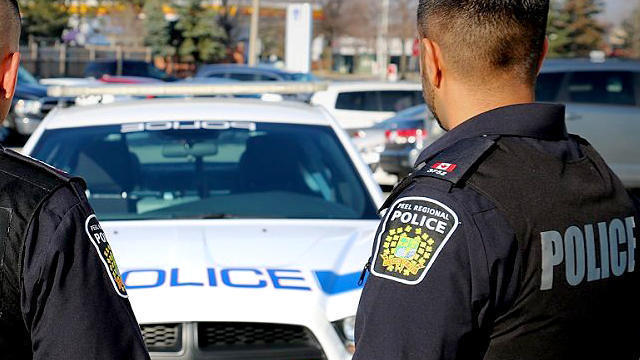Police in Mississauga, Brampton and Caledon need better anti-racism training: survey
Published December 16, 2021 at 3:47 pm

Policing in Peel needs to see some changes according to a new survey on systemic racism, accountability and training.
The insights of more than 1,100 people who live or work in Mississauga, Brampton and Caledon and had interactions the Peel Regional Police (PRP) over the last two years were examined in a report from the force, the Peel Police Services Board and the Ontario Human Rights Commission.
While sixty percent of respondents to the survey rated their interactions with PRP as positive, 82 per cent of Black respondents said they had a negative interaction and that discrimination was a factor.
Of all Middle Eastern and Indigenous respondents to the survey, 100 per cent said discrimination was a factor in negative personal interactions with police.
“Systemic racism exists across all systems and continually affects service delivery to the communities we serve,” said PRP Chief Nishan Duraiappah.
“The results of this survey and other community consultation activities are helping us develop a thorough understanding of the experience Peel residents have with police, and that will help us implement the right remedies.”
While only 48 per cent of those who responded agreed that systemic racism in policing is a problem, the survey found 74 per cent believe better training is an important step to combat systemic racism.
RELATED: Anti-black racism advocate slams ‘intentional ignorance’ of Peel Police board diversity committee
Many respondents were skeptical of PRP willingness to address systemic racism, with only 45 per cent saying the force demonstrates commitment to achieving police reform.
More than half of those surveyed said policing in Peel Region needs reform at 58 per cent, and the survey found people want to see “more accountability and greater transparency” when police interact with the public they serve.
Some 87 per cent said officers should “be required to stop misconduct by fellow officers,” and 84 per cent said police body cameras will enhance accountability and transparency.
According tot he report, a total of 1,711 survey results were submitted, but 609 were disqualified.
Because the survey was not a random sample, the results cannot be said to be reflective of the community as a whole, but the findings offer a broad overview of perceptions and beliefs related to policing in Peel.
INsauga's Editorial Standards and Policies


